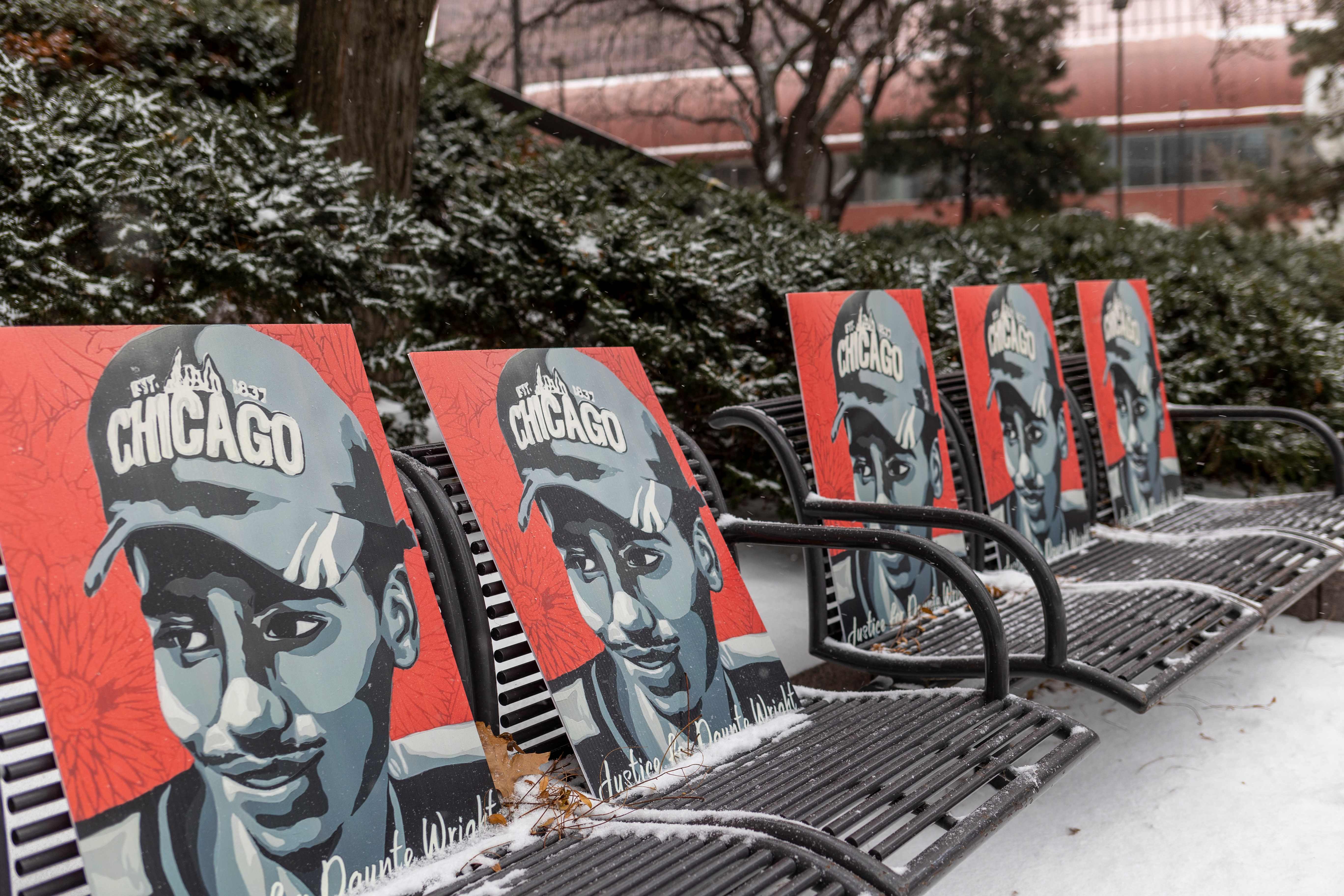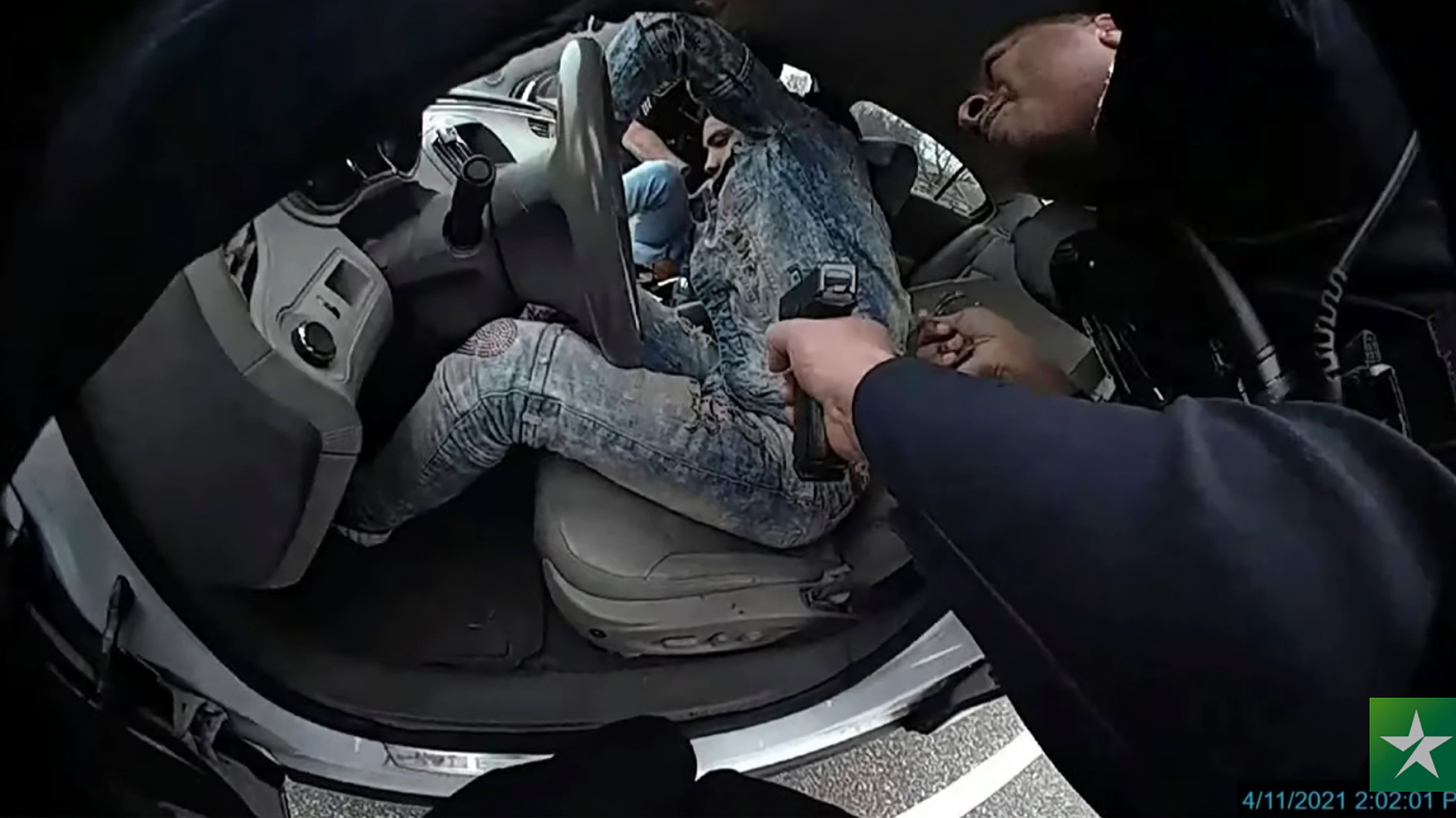Kim Potter trial: Jury struggles to reach verdict in shooting of Daunte Wright raising possibility of mistrial
Jurors must reach a unanimous verdict on both charges of first-degree and second-degree manslaughter
The jury in the trial of white police officer Kim Potter is seemingly struggling to reach a verdict over the fatal shooting of Black 20-year-old Daunte Wright, raising the possibility of a mistrial being declared in the case.
Jurors entered their third day of deliberations on Wednesday morning on whether or not to find the veteran police officer guilty of first-degree manslaughter and second-degree manslaughter, which carry a combined sentence of up to 25 years in prison.
On Tuesday afternoon, jurors asked the judge what they should do if they can’t reach an unanimous verdict.
"If the jury cannot reach consensus, what is the guidance around how long and what steps should be taken?" jurors wrote in one of two notes sent to the court.
Judge Regina Chu responded by rereading the jury instructions that they should continue to “discuss the case with one another and deliberate with a view toward reaching agreement if you can do so without violating your individual judgment”.
Jurors were then sent back to deliberate further before they closed out the day without a verdict.
In total, the jury has deliberated for more than 13 hours – nine hours on Tuesday and more than five hours on Monday afternoon after the closing arguments.
By comparison, jurors deliberated for 10 hours back in April before finding another white Minnesota police officer, Derek Chauvin, guilty of the murder of Black man George Floyd.
Jurors in Ms Potter’s case have been ordered to be sequestered during deliberations, meaning they must stay at an undisclosed hotel and cannot return home until they have reached a verdict in the case.
The judge has said they will not be made to deliberate on Christmas Eve or Christmas Day, giving the 12 jurors just two more days to try to reach a verdict before the holidays.
If they have not done so by then, they will return to deliberations after the holiday.
The jurors are permitted to communicate with their family members while the deliberations are ongoing so long as they do not discuss the trial.

The question to the judge has given a glimpse into what could be going on inside the jury room, indicating that the group of 12 are struggling to reach a verdict on the two manslaughter charges.
Under Minnesota law, a jury must reach a unanimous verdict of either guilty or not guilty on each charge in a criminal case and will be asked to continue to deliberate until they do so.
However, in the event of a hung jury where all 12 members are deadlocked, the judge will declare a mistrial.
Following a mistrial, prosecutors can try the defendant again, reach a plea bargain or drop the charges entirely.
Ms Potter, a veteran police officer of 26 years, shot and killed Mr Wright during a traffic stop in Brooklyn Center, Minnesota, back on 11 April.
The 49-year-old said she mistook her firearm for her Taser when she fired one fatal shot at Mr Wright.
Bodycam footage shows her shouting “Taser! Taser! Taser!” before shooting the father-of-one in the chest.
When Ms Potter took the stand at trial, she broke down in tears and apologised for killing Mr Wright, telling the court: “I’m sorry it happened. I’m sorry.”
The jury asked the court, in its second note on Tuesday, for the zip ties securing Ms Potter’s firearm to an evidence box to be removed so that they could handle it.
The judge granted the request and assured the court that the gun is fully secured and not loaded.
Ms Potter has pleaded not guilty to the charges of first-degree manslaughter and second-degree manslaughter.

The more serious charge of first-degree manslaughter required the prosecution to prove that Ms Potter caused the death of Mr Wright while committing the misdemeanour crime of reckless handling of a firearm.
It carries a maximum sentence of 15 years in prison and/or a $30,000 fine.
The second-degree manslaughter charge required the prosecution to prove that she caused Mr Wright’s death through culpable negligence, meaning she created an unreasonable risk and consciously took a chance of causing death or great bodily harm when she used her firearm.
This charge carries a maximum sentence of 10 years and/or a $20,000 fine.
Under Minnesota law, people with no prior criminal record, like Ms Potter, typically receive far lower than the maximum sentences.
However, prosecutors argue there were aggravating factors in the case and are asking for the maximum sentence.
During closing arguments, prosecutors told the jury that being a police officer does not mean having “a licence to kill” and that Mr Wright’s death was the result of a “colossal screw-up” by the veteran officer.
The case is about the “reckless handling of her firearm” and “culpable negligence” by the defendant, said Prosecutor Erin Eldridge, arguing that she put “four people directly in harm’s way” when she opened fire on the 20-year-old.
She added that something being “an accident” does not mean it isn’t a crime, with intent to kill Mr Wright not part of the charges.
In the defence’s closing arguments, attorney Earl Gray argued that Mr Wright “caused the whole incident” by failing to comply with the officers when they pulled him over.
He argued that Ms Potter also had the right to use deadly force because she believed her fellow officer was in danger.





